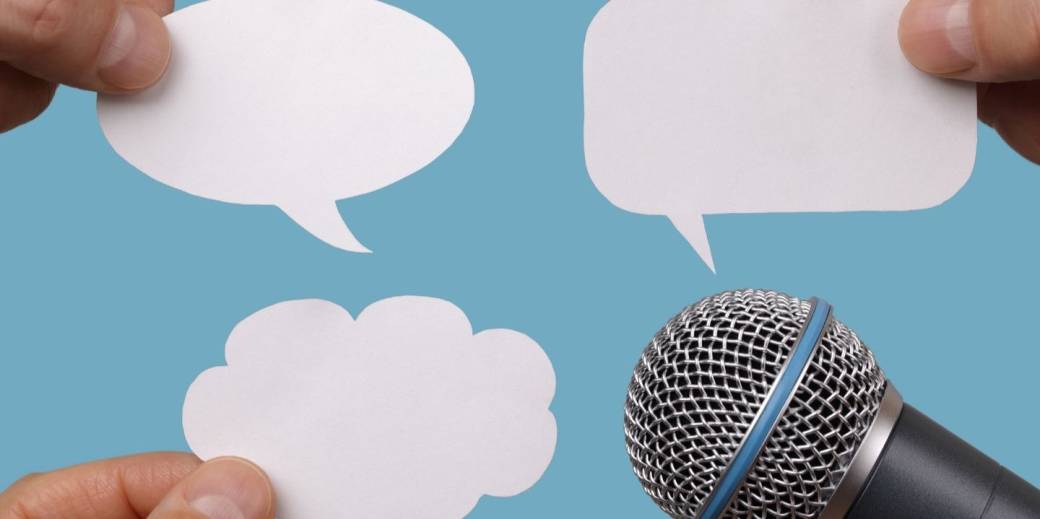Don’t ditch the media training!
22 August, 2019 Reading: 4:39 mins
I’ve lost count of how many times in my (very lengthy!) PR career I have recommended to clients that they should be media trained, only to be told that ‘the marketing budget won’t stretch to it’ or ‘we don’t think we need it’.

I’ve lost count of how many times in my (very lengthy!) PR career I have recommended to clients that they should be media trained, only to be told that ‘the marketing budget won’t stretch to it’ or ‘we don’t think we need it’.
But time and time again when clients have committed, they realise how invaluable a tool it is in their portfolio. And they also reach the conclusion that it’s not just a one-off, ‘box ticking’ exercise, but one that’s worth developing and revisiting over time.
When I look back at some of the classic media interview errors over the last year they simply validate my view. Who can forget Mike Coup, Sainsbury’s CEO caught on camera singing ‘we’re in the money’ just prior to an interview to discuss the supermarket’s plans to buy Asda? I’m sure he will have been media trained at some point, but it’s a classic reminder that it’s not a ‘one-off’ and should be undertaken regularly.
Similarly, I‘m still stunned by the rookie error that, the late, PR guru Lord Timothy Bell made during a Newsnight interview. Not only had he not switched his phone off ahead of his live interview, but when it did ring mid-sentence, he then felt the need to show interviewer Kirsty Walk his phone to see who was calling. Staggering, not only from someone at his level but also given his industry experience!
Quite clearly, even for media veterans, a live interview can be really daunting and without the right training and preparation, it can easily go wrong. Rather than reel off a long list, I’ve pulled together the main reasons I think media training is worth investing in based on my experience with clients over the years:
Get your message across
Even if you’ve been media trained to within an inch of your life, conveying your message in a 30 second interview is a big ask. You need to be finely honed with your messaging and the only way you’ll nail this is by being media trained. It’s not enough to be fully knowledgeable about your topic – you need to have finely crafted sound bites. But, it’s also important to learn how to stay on message without being evasive – answer the question but learn how to transition or bridge to your key message; that way you won’t look stupid, and you won’t frustrate the journalist asking the questions.
Be prepared
Many organisations have a tendency to wait until a ‘crisis’ hits before they consider media training – but to me that’s a very odd rationale. Why not be fully prepared for all scenarios, rather than be caught completely off guard? It seems strange to wait for the proverbial to hit the fan before contemplating media training. A crisis can hit anyone at any time and to know that you have a well-rehearsed spokesperson is a no brainer when it comes to having to deal with the media in a crisis scenario.
Ensure you will be remembered
I can tell straight away if someone has been media trained and you always remember the good interviews. But be warned – you always remember the bad ones too! You don’t want to let nerves get the better of you, you want to make it look effortless and make a powerful impact – that’s where media relations training comes into play.
Build confidence in speaking
Ask anyone who’s been properly media trained and they will tell you how confident it has made them feel in general. Being media trained helps you to identify those ‘nervous habits’, give you tips on overcoming them, and you will be surprised at how empowered you feel in public speaking or presentation scenarios.
Learn how to deal with the curve balls
Of course, you will be media trained to answer all the ‘right’ questions. It’s a great ‘feel good factor’ but you also need to be prepared on how to deal with the curve balls as it’s impossible to anticipate every question. With effective media training you can be taught how to deal with those really awkward questions ¬– there are many useful techniques and a ‘hands-on’ media training workshop will help you with this.
Build a connection
It’s crucial you know who your audience is and then speak to them in their language. You will learn how to talk naturally and not come across as stiff or awkward, and this in turn will help you to build an authentic and emotional connection with your audience – whether that’s a personal one or one aligned to your brand or organisations.
At KISS we believe in the power of media training to help raise the profile of either a career, a business or a brand. We offer bespoke media training packages – never consider a ‘one size fits all’ package – whether that’s to promote a launch or campaign, to deal with a crisis or to help build general confidence. Drop us a line if you’d like us to make your interviews memorable – for all the right reasons!
